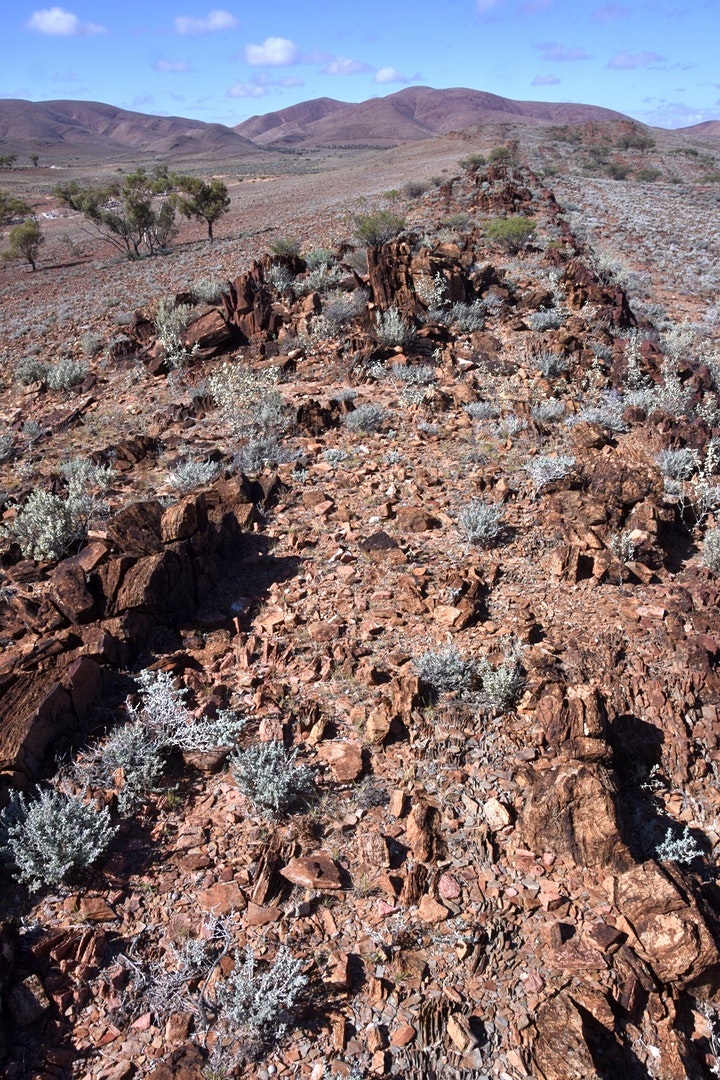Professor Alan Collins will take the GSA GOLD seminar to rocking new heights with a trip to the Flinders Rangers.
An ARC Future Fellow and Director of the Centre for Tectonics, Resources and Exploration (TRaX) at the University of Adelaide, Professor Collins is also a Fellow of the Geological Society of Australia for his significant contribution to the science of geology or related fields. Professor Collin’s on-going research encompasses various aspects of geoscience, including palaeomagnetism, structural geology, geochronology and sedimentology to answer geologically significant questions.
Title: The Flinders Fulcrum – Earth’s Proterozoic Pivot
When: Tuesday 1st September 2020, 1:00pm ACST
Where: Online
Cost: Free for Geological Society of Australia members, $10 otherwise
Non-members can also use the GSA GOLD registration fee as part of their joining fee when applying for membership with the Geological Society of Australia. Please email info@gsa.org.au for more information.
Register: Eventbrite
Professor Collins will be taking the audience a little left field, focusing on the rocks of the Flinders Ranges to link with the upcoming World Heritage Nomination – and the theme surrounding the nomination, to present and discuss how these rocks contain the evidence for a pivot in earth history – from when the planet’s environment and biosphere were stable to a time of vast glaciations, oxygenation of the atmosphere and deep oceans coupled with the eukaryote take-over and metazoan and animal revolution.
Abstract: Why is the Earth different from Mars? Yes, it has water, but so did Mars. The Earth was looking pretty stable until 720 million years ago when we pivoted towards habitability. The Flinders Ranges are iconic Australian arid mountains, with a wealth of history from first nations to drought-stricken nineteenth century farmers, but the very rocks that make them up contain the evidence for how Earth became habitable for large multicellular animals.
Even if we find life on Mars, it will be like life on Earth a billion years ago or more. Our oxygenated atmosphere, our nutrient rich seas – what makes Earth different from any other planet we know – developed while the rocks of the Flinders Ranges were deposited. They contain the evidence of our planetary Proterozoic pivot and it is what makes this rock system a true site of World Heritage.



